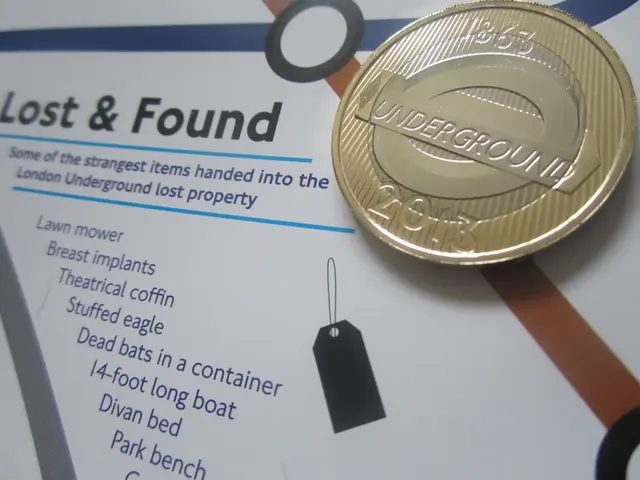A New Dawn for Rheinmetall: Expansion into Satellite Production and Defense Industry Boom
Backlog in orders may imminently erase $40 billion worth of assets
In the face of escalating defense demands driven by geopolitical events and shifting political priorities, Rheinmetall, a German defense giant, is stepping up its game with ambitious expansion plans. One of the most significant moves is the foray into satellite production, marking a strategic shift from its traditional focus.
CEO Armin Papperger paints a promising future for the Düsseldorf-based DAX company. If all goes well, Rheinmetall could surpass an astounding €40 billion in turnover by 2030, a sharp increase from the €10 billion recorded in 2024. Papperger envisions a torrent of orders and plans to ramp up production accordingly. In fact, the company is repurposing factories from its civilian sector to support this expansion. Neuss will be home to satellite production facilities.
Rheinmetall's growth spree is reminiscent of unprecedented expansion unseen within the company's history. The company's first-quarter figures saw a doubling of pre-tax profit, rising from €108 million Euros in January to March to over €200 million Euros. The company had already announced a 46% increase in turnover to €2.3 billion Euros for the first half of 2022 based on preliminary figures, which it has now confirmed. Revenue in the military business increased by around 73%. Orders, particularly from the German military, skyrocketed by over 180% to €11 billion Euros.
To solidify its position as a global defense leader, Rheinmetall is making strategic investments in digital innovation and simulation training systems through partnerships such as the one with Singapore’s Defence Science and Technology Agency. This will equip military personnel with cutting-edge technologies like AI and extended reality, complementing its physical defense production growth.
The joint venture with ICEYE, a global leader in Synthetic Aperture Radar (SAR) satellite manufacturing, marks a turning point in Rheinmetall's ambitions. By producing SAR satellites, which offer high-resolution reconnaissance data regardless of weather or lighting conditions, Rheinmetall aims to carve a niche for itself in the high-demand global defense reconnaissance market. The production is scheduled to begin in the second quarter of 2026 at Rheinmetall’s Neuss site.
The defense market anticipates a potential €1 trillion value by 2030, and Rheinmetall expects an order potential of €300 billion from planned increases in defense spending in Germany and the EU over the next five years. This growth sets the stage for Rheinmetall to become a prominent player in shaping Europe’s technological hub for space-based defense capabilities.
In summary, Rheinmetall's strategy of diversifying into satellite production and strengthening its position in the defense sector is a calculated response to the growing demand for advanced defense technologies. The company's vision of tapping into the potential €1 trillion defense market by 2030 demonstrates its commitment to staying at the forefront of the evolving defense landscape.
Rheinmetall's emphasis on vocational training, with a focus on digital innovation and simulation systems, is an integral part of its strategic growth plan, aiming to equip military personnel with the necessary skills for the advancement of the defense industry. To finance this expansion and investing in cutting-edge technologies, Rheinmetall will leverage the potential €300 billion from planned increases in defense spending in Germany and the EU over the next five years, positioning itself as a key player in the €1 trillion global defense market predicted by 2030.







